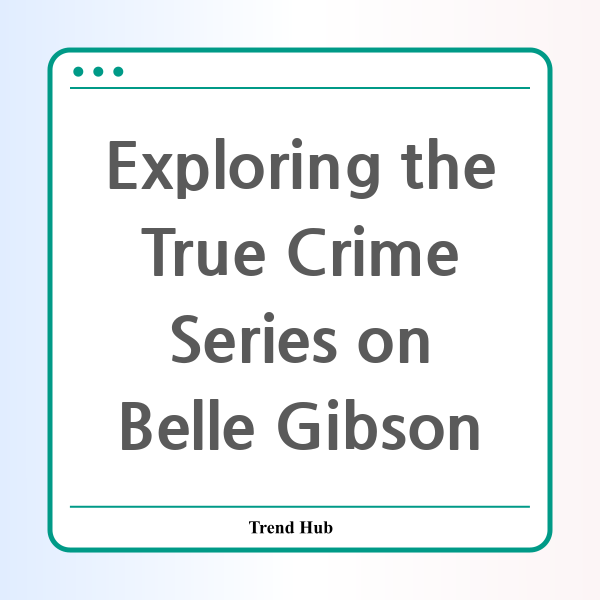* This website participates in the Amazon Affiliate Program and earns from qualifying purchases.

Have you heard about the latest Netflix true crime sensation, focusing on the fascinating yet troubling story of Belle Gibson? The mini-series titled Apple Cider Vinegar unveils the complexities surrounding a woman who spun a web of lies about her health and wellness, capturing the attention of thousands with her claims of battling cancer through natural remedies. However, it raises a critical question: can we separate sensational storytelling from the real-life implications of such narratives?
In the series, Gibson, portrayed by the talented Kaitlyn Dever, exploits the pervasive nature of blogs and social media that took hold in the early 2010s. This is the era when many wellness trends were emerging, often backed by celebrity endorsements and viral stories. Gibson positioned herself as an inspiring wellness guru, claiming that she was thriving despite her terminal diagnosis, largely due to her reliance on alternative treatments like apple cider vinegar. Her story captivated many, leading them to trust her advice over conventional medical treatments.
The six-episode arc expertly weaves together the perspectives of those impacted by Gibson’s deception. Each episode begins with a disclaimer that evolves throughout the series, cleverly playing with the perception of truth within the narrative. Initially, viewers are presented with the phrase "true story based on a lie" to establish the foundation of the series, which then shifts to a more ambiguous take on truth as the story progresses. This leads to a rich exploration of what truth really means in the context of such a sensational tale.
As the series unfolds, it delves into the motives and beliefs of Gibson and the people around her. Her crisis PR manager Hek, for instance, finds himself reflecting on the nature of truth and what it means to care about the unfolding drama. His candid queries about the responsibility of the consumer reveal the ethical quandaries that inherently lurk within true crime storytelling. The series cleverly critiques not only Gibson’s actions but also the audience’s hunger for scandal and drama.
Despite the gripping performances and a detailed setting that encapsulates the zeitgeist of early social media, Apple Cider Vinegar struggles to break free from the very genre conventions it seeks to critique. It presents a cautionary tale but ultimately falls back into the same traps of sensationalism it tries to avoid. By the finale, viewers are left pondering whether they’ve engaged with a compelling narrative or merely consumed another cautionary tale about a con artist in a world predisposed to believe in miracles.
While the show captures the zeitgeist of the early 2010s, it also acknowledges the significant backlash against the true crime genre itself. As consumers of true crime narratives, viewers are beckoned to confront their complicity in the commodification of tragic stories. The industry has grown significantly, leading to a conversation about the ethics surrounding the portrayal of real-life events, especially when they involve deception and victimization.
In summary, Apple Cider Vinegar offers a fascinating glimpse into the world of Belle Gibson, weaving together a tale of deception, belief, and the power of social media. While it succeeds in presenting a well-structured narrative and thought-provoking themes, it also serves as a reminder of the dangers of sensational storytelling that can often overshadow the reality behind the individuals involved. This series is a must-watch for those interested in the intersections of wellness culture, media ethics, and the complexities of truth in the digital age.
* This website participates in the Amazon Affiliate Program and earns from qualifying purchases.